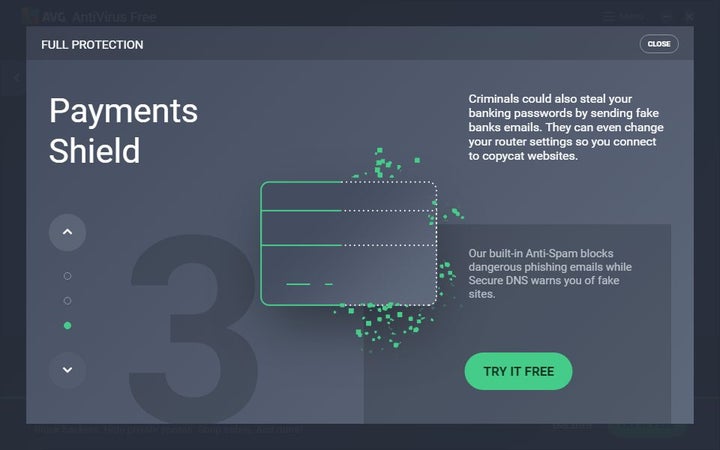How can you identify a financial scam on social media?

- January 13, 2025
- Updated: February 5, 2025 at 5:12 PM
Social networks have transformed the way we communicate, relate to each other, learn, and entertain ourselves. These days, almost all of us have our personal data on platforms like Facebook, Instagram, TikTok, Twitter, or BlueSky, which means there are plenty of potential entry points for scammers and hackers.
With global internet access now ubiquitous, cybercriminals have found the perfect environment to pull off increasingly elaborate scams. Anyone can be contacted through their social media profiles, so we have to be extra cautious about tactics that can catch us off guard.
From the classic “You’ve won a million-dollar prize!” traps to private messages threatening to post sensitive material about you, there are all kinds of scams that can result in huge losses—both financial and in terms of personal information. But which are the most common tactics? Let’s take a look.
Quick or Easy Money Promises
It’s a classic—and it still works even today. You’ll see a message or post from someone you don’t know (or sometimes even someone you do know—remember, their account could be hacked) promising to make a lot of money in no time. Typically, these scams feature generic phrases like “Earn €10,000 in one week!” or “Get rich by investing only €100!” This type of fraud has also surged with the popularity of cryptocurrencies.
We need to be especially wary of these scams. If you click on the links provided or disclose any personal information to the cybercriminals behind them, you could find yourself in serious trouble with potentially severe consequences.
A “Life or Death” Plea for Money From Someone You Know
Another common technique involves taking over someone’s account and then asking their contacts for money via direct messages with a fabricated emergency story. Often, the money is requested through PayPal, Bizum, or other third-party payment methods. If you fall for it, you might never get your money back, so make sure you’re always talking to the actual person behind the account.
A Celebrity Starts Following You
Fake profiles pretending to be famous people are also frequent on social media. Scammers impersonate actors, musicians, or sports figures, and—once you’re excited about interacting with someone like that—they ask you for money or to click on a suspicious link. This scam plays on your hopes, but recognizing it early is crucial.
An Offer That Doesn’t Match Market Value
On classified sites for real estate rentals and sales, as well as job postings, cybercriminals also operate frequently. They lure you into applying for fake job offers via fraudulent links or trick you into sending private information such as ID documents, emails, or passwords. Then, they can do whatever they want with that information.

Some Tips to Avoid Falling for These Traps
Here are a few quick tricks to help you identify a digital scam:
- Profiles Tend to Be Suspicious: Scammers usually use fake profiles. Look out for signs like stolen or generic profile photos, minimal activity on the social network (few posts, followers, or genuine interactions), and frequent username changes to hide past activities.
- Pressure to Act Quickly: Scammers use urgency tactics, such as “limited-time offers” or threats about “losing the opportunity.” These strategies rush you into decisions without weighing the risks, so keep a clear head before responding.
- Communication Outside the Platform: If they ask you to move the conversation off the social network—especially to Telegram (a hotbed for cybercriminals) or WhatsApp—be cautious. Scammers prefer less regulated platforms to avoid being traced.
- Lack of Verifiable Information: A legitimate business will have a professional website, precise contact details, and registration with relevant authorities. If you can’t verify the authenticity of a company or individual behind an offer, do not proceed.
Let a Good Antivirus Help You Out
Today’s antivirus software does more than protect you from malware; it also helps guard against these types of scams. That’s why we always recommend having solid antivirus protection. Specifically, AVG AntiVirus Free offers a comprehensive system to help combat spyware, ransomware, trojans, and other harmful programs.
What Can I Do if I Suspect Someone Wants to Scam Me?
In addition to following the tips above, remember never to share personal information—bank details, passwords, or sensitive documents—digitally unless you can verify the authenticity of the offer or profile.
It’s also vital to consult financial advisors or cybersecurity experts. And, of course, report any suspicious profile with these characteristics. If it’s already too late and you’ve fallen into the trap, contact the police immediately. Scams like these are so common that law enforcement has established procedures for handling them.In any case, prevention is always better than cure, so to avoid these problems as much as possible, it’s best to have quality antivirus protection like AVG AntiVirus Free so you can browse with peace of mind.
Cultural journalist specialized in film, series, comics, video games, and everything your parents tried to keep you away from during your childhood. Also an aspiring film director, screenwriter, and professional troublemaker.
Latest from Juan Carlos Saloz
You may also like

California's state highways: the key point for the future of EV
Read more

The big beneficiary of Trump's tariffs would be the electric car
Read more

The environment celebrates the latest news in the electric sector: the industry welcomes the EV
Read more

BYD announces the arrival of electric vehicles with solid-state batteries by 2027
Read more

30% more autonomy and faster charging: the future of BMW's EV is here
Read more

Hyundai and Kia are preparing to regain the federal tax credit of $7,500 for 2025
Read more